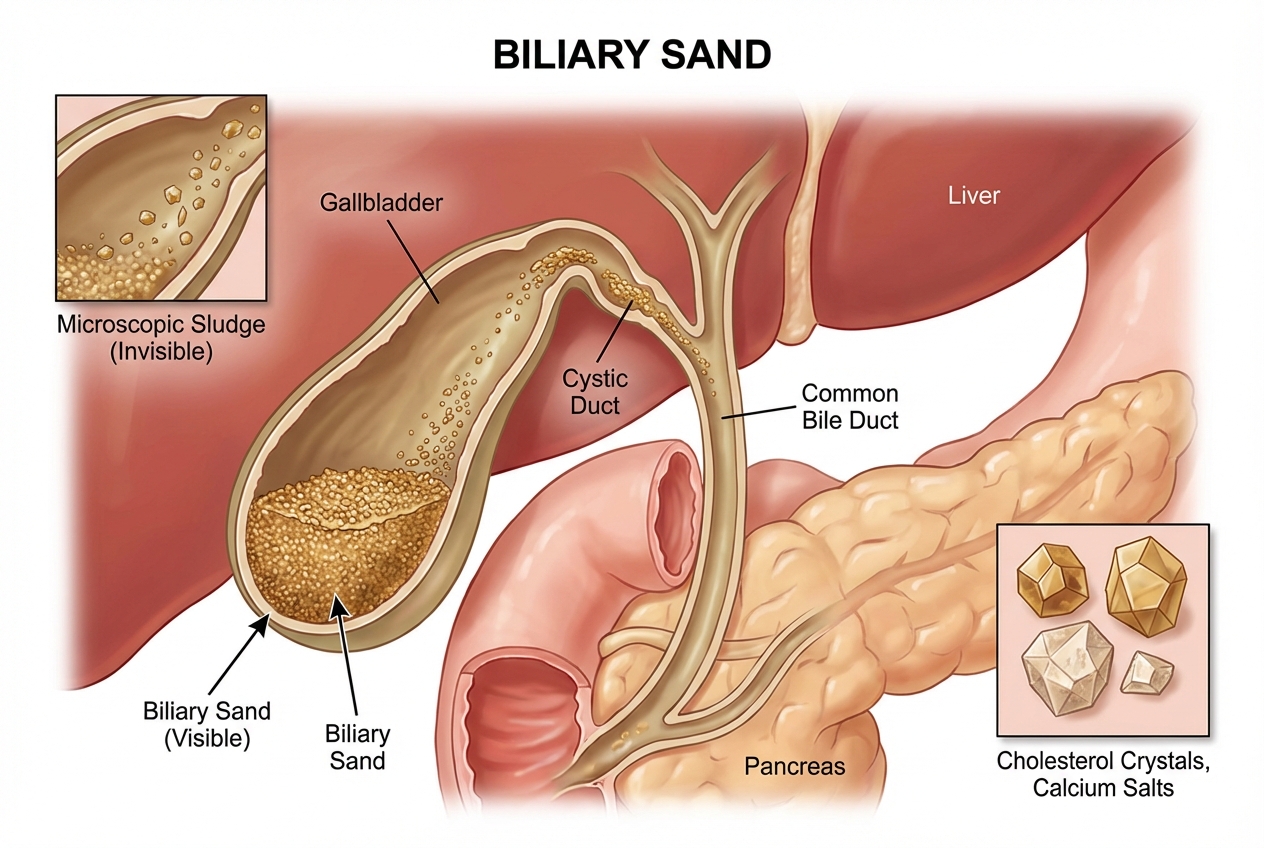
Biliary sand is a term predominantly used by surgeons to refer to countless tiny particles visible to the naked eye during a specific procedure. These particles may represent a phase in the development process, starting as microscopic sludge, which is invisible to the eye, and progressing to a more noticeable form. The composition of biliary sand is akin to that of gallstones, commonly consisting of cholesterol crystals and calcium salts. While biliary sand often causes no symptoms, it can sometimes lead to episodic discomfort. When symptoms do appear, they resemble those of gallstones, such as abdominal pain, nausea, and vomiting, especially after consuming a fatty meal. Potential complications from biliary sand include inflammation of the pancreas (pancreatitis) and inflammation of the gallbladder (cholecystitis). An abdominal ultrasound can frequently detect biliary sand. If symptoms or complications arise, treatment may involve the surgical removal of the gallbladder, known as cholecystectomy.




